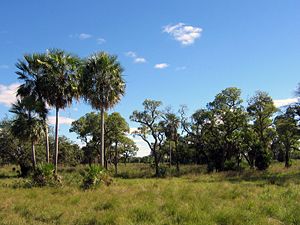Water supply and sanitation in Paraguay
Despite many years of concerted efforts and achievements in expanding coverage and improving service sustainability, many issues remain to be addressed in the water and sanitation sector.
[1] Responsibility for policy formulation is nominally vested in the Ministry of Public Works and Communications and regulation is entrusted to an autonomous entity, the Regulatory Agency for Sanitation (ERSSAN).
In practice, the Ministry of Public Works and Communications has not developed sector policies, leaving a vacuum in this important area.
Urban utility tariffs are set below cost recovery levels and are adjusted infrequently, leading to substantial operating losses by the national water and sanitation enterprise.
As mentioned above, the World Bank’s relationship with the Government of Paraguay and the SENASA on rural water systems goes back for about 30 years.
A secondary development objective was to modify SENASA’s role in the sector from an implementer of projects to an efficiently managed promoter of activities.
[4] On April 14, 2009, the World Bank approved a $64 million loan for the Paraguay Water and Sanitation Sector Modernization Project.
In 2001 the IDB approved a US$12m loan to support a Small Community Water Supply Sanitation Project executed by SENASA.

